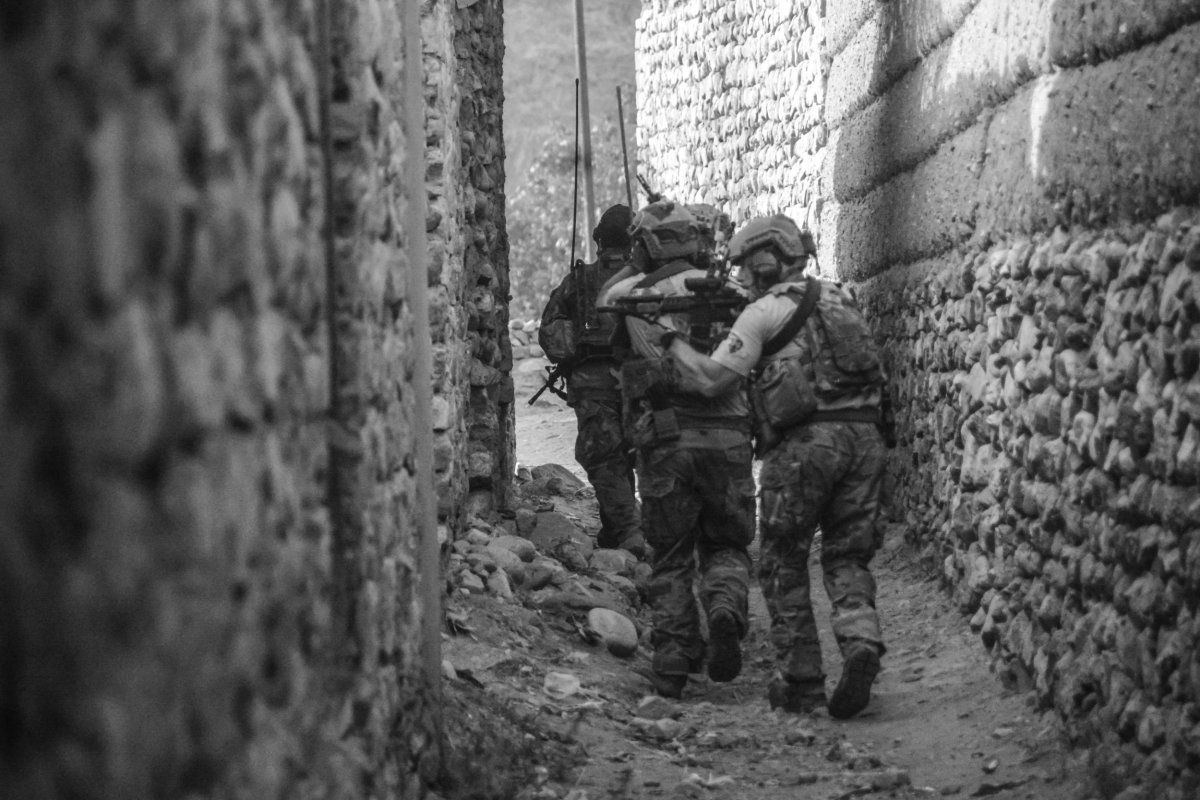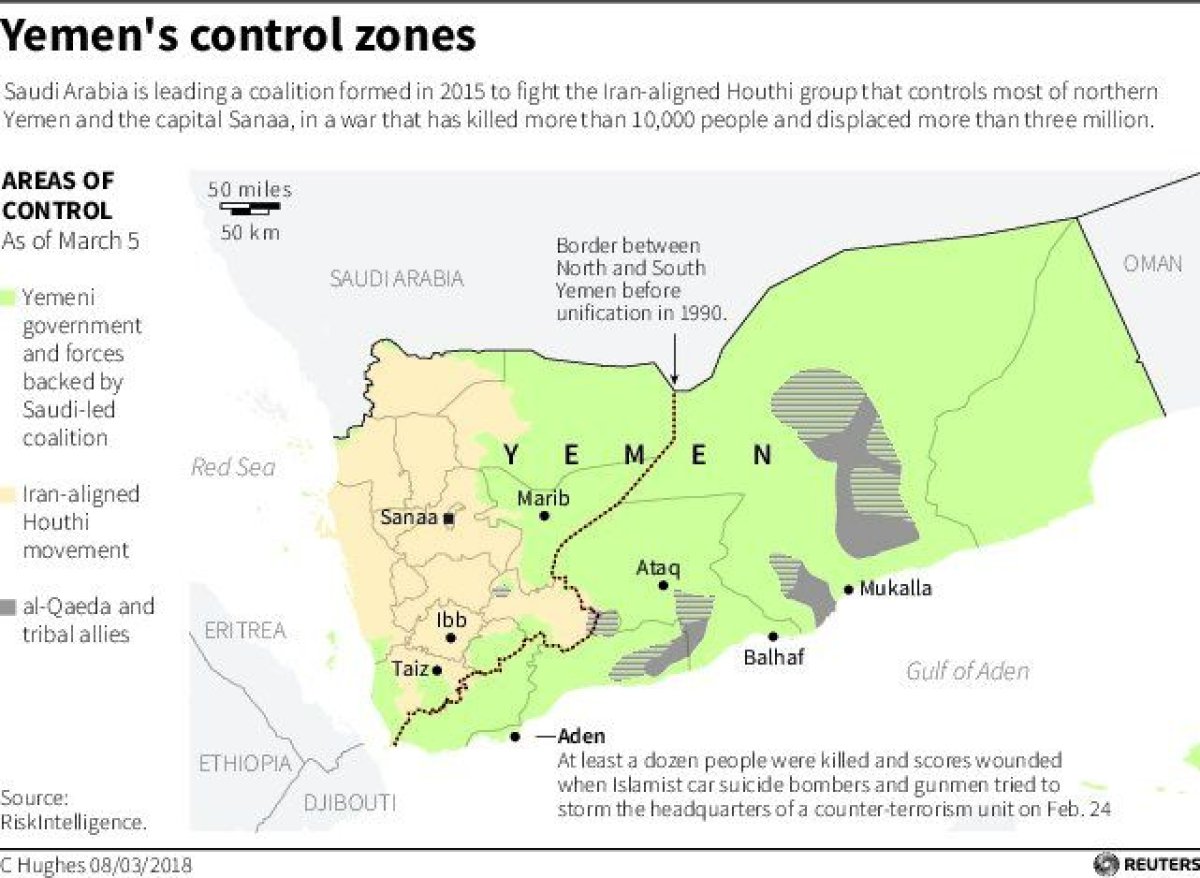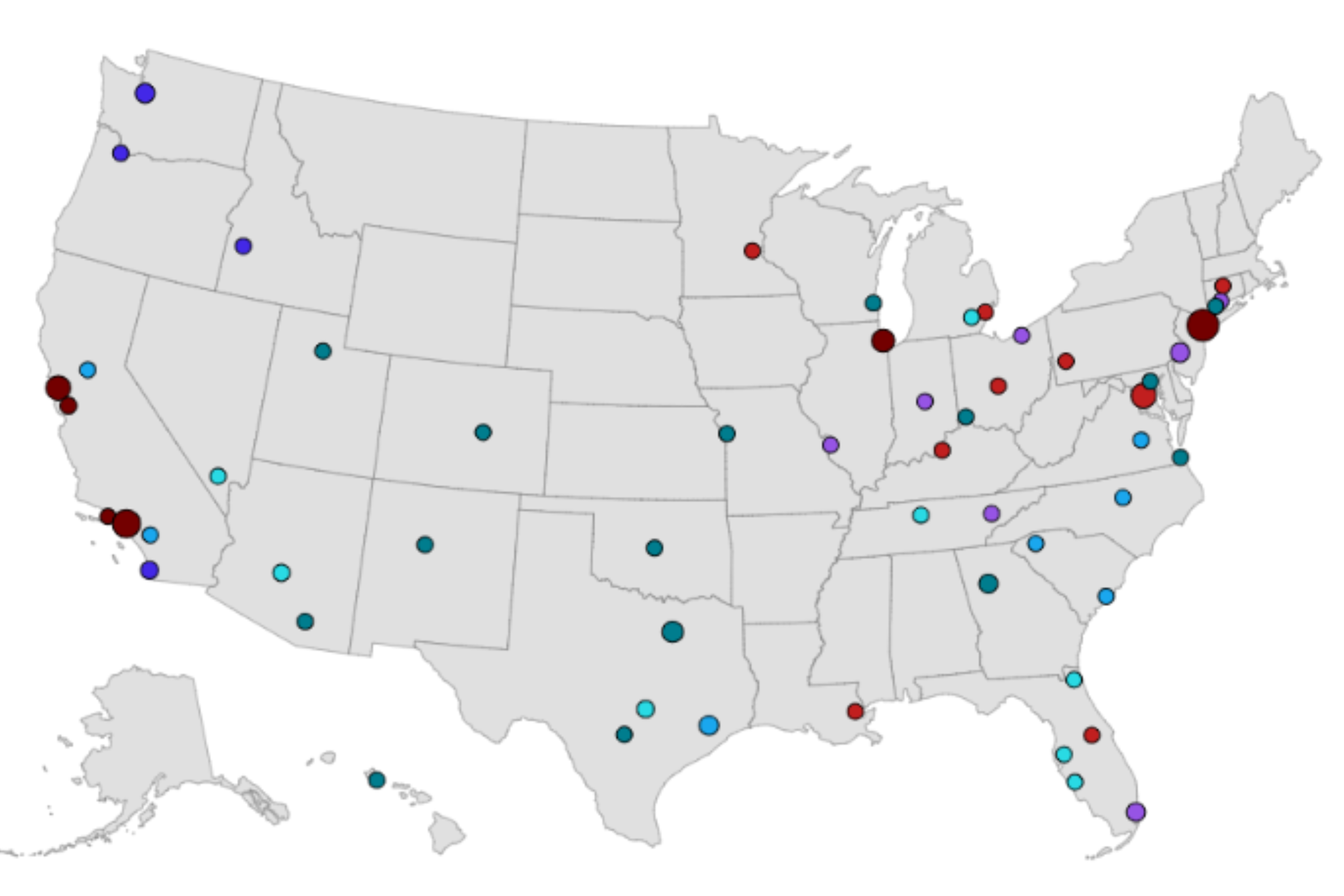U.S. Army Special Forces have been covertly aiding in Saudi Arabia's war against Zaidi Shiite Muslim insurgents in neighboring Yemen, where the rebels control the capital and often fire ballistic missiles, according to a new report by The New York Times.
Citing information provided by U.S. officials and European diplomats, the Times reported Thursday that about a dozen Green Berets were deployed to Saudi Arabia's border with Yemen in December, a month after the Houthi rebels fired a Burkan-2 ballistic missile at Riyadh's international airport. Saudi Arabia claimed to have intercepted the November attack with its U.S.-built MIM-104F Patriot missile defense system, but analysts have cast doubt on this official version of events.
Saudi Arabia's Crown Prince and Defense Minister Mohammed bin Salman reportedly reached out to the U.S. for help in locating and destroying Houthi missile launch sites shortly after, opening what may be a new shadowy front for the Pentagon's operations in the Middle East.

Yemen's current unrest began with the ouster of longtime President Ali Abdullah Saleh amid a wave of regional protests in 2012. Saleh was replaced by his deputy Abed Rabbo Mansour Hadi, who himself faced growing dissent as well as dueling Shiite Muslim and ultraconservative Sunni Muslim insurgencies. The former, allied with Saleh loyalists, stormed Sanaa in 2014 and took control early the following year.
Saudi Arabia accused the Houthis of being a proxy for the kingdom's top regional rival, Iran, and gathered a coalition of Arab allies to begin bombing the rebels and attempt to restore Hadi's rule, which was relegated to the southern port city of Aden. Three years later, Saudi Arabia has helped its local allies gain some ground, but the conflict remains mostly in a stalemate, even after two major schisms within the warring alliances.
Related: Who are the Houthis and why are they firing missiles at Saudi Arabia?
First, Saleh was shot dead in December under yet unknown circumstances, but his supporters have blamed their Houthi partners, who accused the former Yemeni leader of trying to reconcile with Riyadh. A month later, the Saudi-led coalition found itself under friendly fire after southern separatists supported by fellow Gulf monarchy the United Arab Emirates seized parts of Aden.
The U.S., meanwhile, has launched airstrikes and raids against jihadi groups such as Al-Qaeda in the Arabian Peninsula and the Islamic State militant group (ISIS), and has offered strategic support to the Saudi-led campaign, but the Pentagon has avoided getting too deeply involved in the civil war. This may be set to change, however, as evidenced by the Times report as well as a contract last month that called for two fixed-wing aircraft and two helicopters to be deployed to Yemen, as website The Drive reported.

President Donald Trump has sought a closer relationship with Saudi Arabia, who he views as a key ally against Iran. Months after taking office, Trump visited Riyadh and struck a $110 billion arms deal with Saudi Arabia. When Prince Mohammed visited Defense Secretary James Mattis in Washington in March, he walked home with a $670 million deal for U.S. weapons and equipment.
In addition to threatening to tear up a historic 2015 nuclear agreement, the Trump administration has also pressured Iran over allegations that it provides Houthis with the ballistic missiles they target Saudi Arabia with. Iran publicly supports the Houthis politically, but denies providing them with any weapons.
A 2017 report by the Nation Institute's Tom Dispatch found that U.S. Special Forces were deployed to 138 nations, or 70 percent of the world.
Uncommon Knowledge
Newsweek is committed to challenging conventional wisdom and finding connections in the search for common ground.
Newsweek is committed to challenging conventional wisdom and finding connections in the search for common ground.
About the writer
Based in his hometown of Staten Island, New York City, Tom O'Connor is an award-winning Senior Writer of Foreign Policy ... Read more
To read how Newsweek uses AI as a newsroom tool, Click here.








